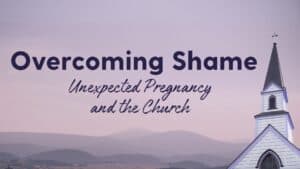For pastors, there are a few books worth reading again regularly. One is Lectures to My Students, by Charles Spurgeon. If you have not read it, you should. The book is a collection of lectures Spurgeon gave to the young men training for gospel ministry at his pastors’ college. Since the volume is a collection of essays, it is easy to jump around and read whatever essay interests you most. It’s not a sequential read.
The first lecture is the most well-known and is a great way to introduce all the following lessons. The title is “The Minister’s Self-Watch,” an exposition of 1 Timothy 4:16, where Paul writes, “watch your life and doctrine closely.” In this letter, Paul, the master planter-preacher, writes to Timothy, the young disciple-pastor in training. In gospel ministry, Paul instructs Timothy to observe two overarching categories. First, Paul instructs Timothy to watch his character, lifestyle, and demeanor. And secondly, Paul tells Timothy to watch his doctrine, meaning what Timothy teaches formally and informally about the things of God.
If Timothy does this, Paul says, “you will save both yourself and your hearers.”
Just as each tool in a toolshed has a different purpose, so does God have different uses for different men. Spurgeon’s Pastors’ College aimed to prepare useful men for good gospel ministry. These men understood that they were to be God’s tools to use as He pleased.
The opening line of this first lecture states,
“Every workman knows the necessity of keeping his tools in a good state of repair, for ‘if the iron be blunt, and he does not whet the edge, then must he put to more strength.’”
Charles Spurgeon
“Tool” is an excellent word for men training to be pastors. As pastors, it is not our job to tell God what kind of “tool” we are. He calls and sends. Our job is to be ready and sharp for when He does call. We want to be useful tools. The two ways to stay sharp are by keeping a close watch on our life and our doctrine.
We will take this two-pronged exhortation in separate points.
Pastor, watch your life
There are plenty of news stories about pastors falling from the ministry. And we all know of stories of local pastors, though not nationally known, who have caused great harm to the church’s work.
A pastor’s character is not the grounds for a member’s salvation. It is not through character that someone can come to or persevere in saving faith. That only happens through faithful preaching. But great danger can come from bad character. A pastor’s character might hinder a person’s ability to hear the gospel’s call.
In the denomination I serve, the Presbyterian Church in America, numerous levels of accountability are embedded into our polity, starting at a local church’s elder board up to the General Assembly. It’s not a perfect system, as we have our fair share of discouraging falls from ministry. But I am glad for systems that watch and check a pastor’s character. After the fall of several recent high-profile pastors, I was shocked—though maybe I should not have been—by how very little was in place to keep those men accountable.
Character matters—in the pulpit and out of the pulpit. In the home and out in the world. Publicly and privately. The character of a pastor can help soften the heart so that others might hear the good news without distraction. Bad character does the opposite. It shuts off the ears of those watching and listening.
How we conduct our life matters. Watch carefully.
Pastor, watch your doctrine
The content of our teaching matters as much as our lives. Therefore, watch your doctrine.
Paul reminds Timothy to “put before the brothers … the words of faith he was trained in.” That is “good doctrine.” He warns Timothy to “have nothing to do with irreverent, silly myths” (1 Timothy 4:6-7). The theme of 1 Timothy is in 6:20 “to guard the good deposit.” That is, for the next generation’s sake, to guard the gospel with all its particularities and nuances from outside teaching.
Legalism, antinomianism, Nestorianism, modalism, Arianism—all the ancient heresies are as alive today as they were doing the early church. Yes, of course, there is a danger in becoming a dry preacher who sounds overly academic and not like actual gospel proclamation. God, keep us from the error of dry preaching. But there is also a great danger, even a sin, in not filling our ministries with robust, sound doctrine. In our age of hyper-emotional but sadly atheological churches, may we be both joyful and free and doctrinally rich and pure. Let us check our teaching against orthodox Christianity’s great creeds and confessions. Let us read books that aren’t only about pragmatic church growth but the great books of theology—Christology, ecclesiology, pneumatology, and so on. May we, as pastors, be committed to learning continually and stay fresh for the sake of deeper doctrine in our ministries.
The fact that I have only one pastoral race to run often sobers me. There will be a time when we have finished our pastoral journeys because we are in the presence of the great pastor, Jesus. He entrusts only one race to us.
But until that day, we are the tools God designed for his kingdom work. I’ve often heard from handymen (which I am not) that the most dangerous tool is a dull one. Dull tools slip easily and cause injury.
Brother pastor, let us be sharp tools in God’s shed. Men of high character. Men worth listening to. Let us be men who, of course, are repenting but also live far above reproach. And let us be men of strong doctrine, not being tossed to and fro by the waves of culture but firmly fixed in the great, eternal truths laid out in God’s inerrant word.
May we watch, as both Spurgeon and Paul agree, both our lives and doctrine.



















